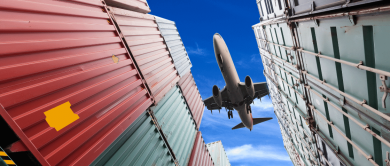An Importer of Record is the entity that holds legal responsibility for ensuring that goods are imported into a country in a compliant manner.
What Is (IOR) Importer of Record?
It refers to the individual or entity in the destination country that is accountable for making sure the importation of goods from abroad complies with all necessary regulations. The IOR functions similarly to the Exporter of Record (EOR), but for imports rather than exports.
The role of an Importer of Record (IOR)
It involves making sure that all legal requirements are fulfilled prior to the clearance of goods through customs.
This includes verifying the accuracy of product classification and proper valuation of imported goods, as well as taking care of associated fees, duties, taxes, and documentation. The IOR also bears the liability for any risks involved in the clearance process of the goods.
Documentation Responsibilities for Importers of Record: When importing goods, it is necessary to meet the customs regulations of the target country.
The standard documentation requirements typically include: Documentation for Product Classification: Detailing the type and value of goods being imported
- Import/Export Licenses: Evidence of authorization to import goods
- Permits: Relevant documents related to importing activities
- Fees/Taxes/Duties: Completion of necessary paperwork when paying associated fees, taxes, or duties
- Power of Attorney (POA): A document that designates a representative to handle legal responsibilities on behalf of the Importer of Record in their absence.
- Additionally, some countries may necessitate compliance with local regulations and regulations, which may require additional documentation and paperwork.
Who is Eligible to Serve as an Importer of Record?
Any locally registered entity can assume the role of the IOR, provided they have a physical presence in the destination country.
Sometimes, the consignee can serve as the Importer of Record. However, in the case of intricate transactions, it may become necessary to appoint a customs broker or a service partner specialized in Importers of Record.
Designating an Importer of Record helps to clarify the ownership of goods among suppliers, distributors, and end-users. During the import process, the IOR becomes the temporary owner of the goods and takes on all responsibilities related to the importation. The representative appointed through a Power of Attorney can also act as the Importer of Record with the proper documentation.
Some Important IOR Definitions
The Owner/Purchaser is the entity responsible for importing the consignment and holds a financial interest in the importation of the goods.
The Exporter is the entity acknowledged by customs as the official provider of goods being exported from one nation to another. This can be a business, an individual, or a company representing the exporter as their designated exporter.
The Consignee is the recipient and rightful owner of the imported goods. They do not acquire ownership until customs has cleared the goods. Also, they can be an individual or a business entity, and in some cases, the same entity can be both the importer and consignee when a business imports goods for storage, internal use or distribution.
A Customs Broker is an external entity who serves as the official importer of record, assuming the legal responsibility for paying fees, documentation and compliance.
Becoming an Importer of Record
To obtain the status of an importer of record, an application for an importer of record number is required. A fee is typically associated with this process and proof of identity and a power of attorney declaration are required as part of the necessary documentation.
To be an effective Importer of Record, a thorough understanding of the importing procedure, a physical presence within the importing country, and the willingness to assume the legal obligations associated with customs clearance are necessary. Failing to fulfill the requirements can result in fines and penalties, which the IOR will be responsible for paying. Additionally, shipments may become delayed at customs, resulting in additional demurrage charges.
Customs and Compliance Obligations As Importer Of Record
The Importer of Record has the responsibility to maintain compliance with the laws, regulations, and statutes of the importing country. This can be achieved through compliance tools, auditing programs and training. This is referred to as voluntary compliance.
In addition to voluntary compliance, the designated Importer of Record is also subject to enforced compliance measures. This includes import inspections, documentation audits, monetary fines, civil or criminal penalties, and investigations.
Government agencies such as the Environmental Protection Agency (EPA) and the Food and Drug Administration (FDA) have the authority to override the Importer of Record and prevent the entry of imported goods if they pose a potential threat.
Organizing the Global Supply Chain
The process of importing goods globally can be intricate. One of the key duties of an Importer of Record is to ensure a seamless process. Involvement of suppliers, distributors, and end-users can lead to oversights and cause shipments to become delayed, leading to penalties and fines.
The supply chain can be efficiently managed by choosing a company like AGOL Worldwide Inc as the Importer of Record. We will assume all necessary responsibilities related to importing goods, ensuring smooth customs clearance. This reduces the risk and saves time and money.
Having a dedicated Importer of Record ensures that no important details are overlooked. Other parties in the supply chain may have multiple responsibilities that can make obtaining necessary documentation challenging. An importer of record service can increase accuracy, improve efficiency, and provide peace of mind.
At AGOL Worldwide Inc, we provide comprehensive Importer of Record solutions, with a focus on the medical and technology industries. Contact us to have a conversation with one of our knowledgeable experts regarding your importing requirements.
Importer Of Record FAQ
Does the Importer of Record own the goods?
In some situations, the Importer of Record is also the owner of the goods. However, if a third-party service like a customs broker is utilized, they will temporarily hold the ownership of the goods until they are cleared through customs. After clearance, the consignee will become the owner.
What does importer of record number mean?
An Importer of Record (IOR) number is a distinctive identifier assigned to the importer by the government of the destination country for the purpose of importing goods.
Are consignee and importer of record the same?
The consignee is the recipient who assumes control or ownership of the goods after they have undergone customs clearance. While in certain instances, when the imported goods are meant for a company’s in-country usage or storage, the consignee can serve as the importer, they are not always one and the same.
It is possible for the shipper to be the Importer of Record (IOR), if the shipment is made under the terms of DDP (Delivered Duty Paid).
Can a shipper become an importer of record?
In the case of goods shipped under Delivered Duty Paid (DDP) terms, the shipper may serve as the Importer of Record (IOR).
Who is an IOR in Delivered Duty Paid shipments?
In a DDP (Delivered Duty Paid) shipment, the seller is accountable for the goods from the point of shipment until the final delivery, regardless of the mode of transportation chosen.
Can I act as my own IOR?
As a goods owner, you have the option to act as your own Importer of Record (IOR). However, for economic and practical reasons, many individuals opt to work with a licensed service provider who can handle all relevant legal obligations and minimize the risk of incurring penalties.
If you are seeking consultancy regarding your IOR shipments feel to share your inquires at timecritical@agolworldwide.com
















